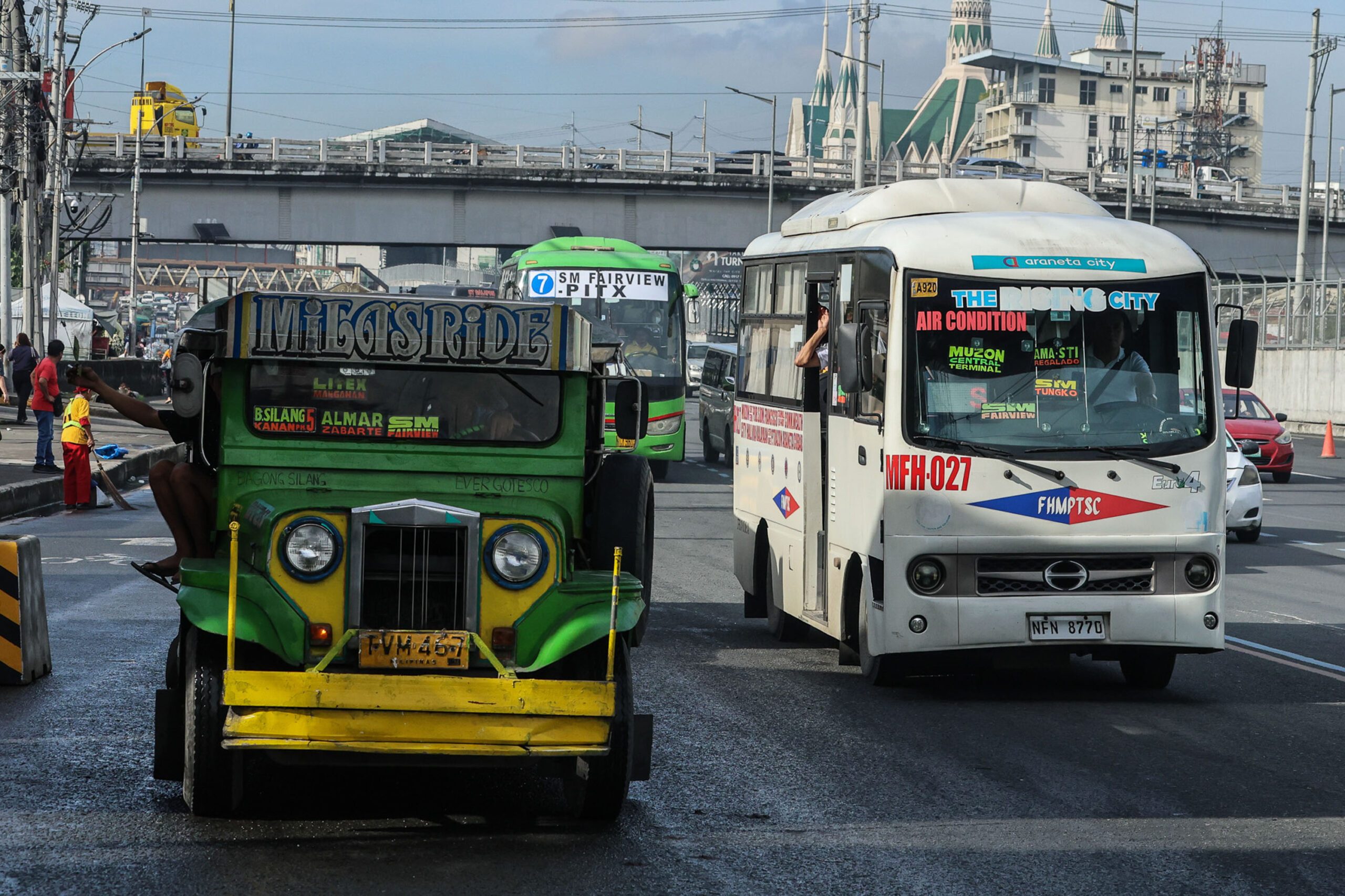SUMMARY
This is AI generated summarization, which may have errors. For context, always refer to the full article.

MANILA, Philippines – President Ferdinand Marcos Jr. confirmed that there will be no further extension to the April 30 deadline for individual jeepneys to consolidate into cooperatives and corporations.
“Asahan ninyo, wala na pong extension ‘yung modernization. Kailangan na kailangan na natin ‘yan,” Marcos said during a town hall on Metro Manila traffic on Wednesday, April 10.
This came after Roberto “Ka Obet” Martin of the Pasang Masda transport group asked that the government stick to the industry consolidation deadline, noting that “almost 86%” of the jeepney sector have consolidated.
Back in 2023, Marcos had said that the government would not extend its December 31 deadline for consolidation. This had meant that more than 1,900 unconsolidated jeepney and UV Express routes were at risk of being wiped out by February 1, 2024, leading the President to eventually cave in to pressure from protestors and lawmakers to grant another extension until April 30.
As part of its Public Utility Vehicle (PUV) Modernization Program, the government has been trying to get individual jeepney operators to consolidate into either a cooperative or corporation since June 2023. But this has been met with repeated protests from some transport groups that oppose both the consolidation of franchises and the eventual requirement to buy expensive modern jeepneys.
Now, after Marcos gave his word that this would be the final deadline for industry consolidation, Ka Obet and other representatives from the jeepney sector stood and cheered.

But although the scene might have suggested that industry consolidation is widely accepted by all members of the jeepney sector, certain transport groups remain vocal about their opposition – only they weren’t there.
PISTON and Manibela, the two groups that led multiple transport strikes in 2023, were not invited to the town hall, based on the list of program attendees seen by Rappler. Instead, Martin – a Marcos supporter since the 2022 elections – was designated the representative of transport groups during the event’s open forum.
This snubbing of certain transport groups was not lost on Manibela, as the transport group’s chairman Mar Valbuena took to social media to air his frustration.
“Sa town hall meeting dapat kasama ang lahat! Mahalaga na bawat isa ay maanyayahan upang maipahayag ang kanilang mga pananaw at opinyon hinggil sa isyu ng jeepney phaseout. Bilang mga mamamayan, may karapatan tayong ipahayag ang ating mga hinaing at maging bahagi ng prosesong demokratiko,” Valbuena said in a Facebook post on Wednesday, April 10.
(Everyone should be included in a town hall meeting! It’s important that everyone is invited to share their views and opinion on the issue of jeepney phaseout. As citizens, we have the right to express our grievances and be part of the democratic process.)
What happens after April 30?
The Land Transportation Franchising and Regulatory Board (LTFRB) has also announced that the April 30 deadline will stand.
“So we are asking now the jeepney operators to now avail of the last extension because come April 30, we will no longer allow those who did not consolidate to ply the routes of Metro Manila,” LTFRB Chairman Teofilo Guadiz III said on Monday, April 8.
Guadiz said that the LTFRB will revoke the franchises of those individual operators who failed to consolidate before the deadline, making them “colorum.” This means that only consolidated entities will be allowed to ply the routes of Metro Manila.
“We need to consolidate because that is the first part of the modernization program,” the LTFRB chief said.
The next steps under the government’s PUV Modernization Program include fleet modernization, which means that operators will have to replace their old units with new “modern jeepneys” that are compliant with the Philippine National Standard.
Some operators worry that this requirement will bury their cooperative or corporation in debt, as modern units cost an average of P2.48 million each. This could affect commuters too. A research study done by the UP Center for Integrative and Development Studies estimates that minimum jeepney fares could soar up to P40 as operators try to cover their monthly loan amortization for their new units. (READ: Anti-poor? How gov’t defends PUV modernization, why jeepney stakeholders oppose it)
It seems that the President is at least aware of this possibility that operators may be buried in debt, explaining during the town hall, “Ang tinitiyak lang namin na hindi mapabigat pa ang babayaran at i-uutang ng driver-operator, kaya ginagawa nating maayos at ginagawa nating well-organized ‘yung sistema na ‘yan.”
(What we’re making sure of here is that the amount that driver-operators have to pay or borrow doesn’t get heavier, which is why we’re making this system proper and well-organized.) – Rappler.com
Add a comment
How does this make you feel?





![[Just Saying] SONA 2024: Some disturbing points](https://www.rappler.com/tachyon/2024/07/TL-marcos-sona-points-july-23-2024.jpg?resize=257%2C257&crop=335px%2C0px%2C720px%2C720px)

There are no comments yet. Add your comment to start the conversation.